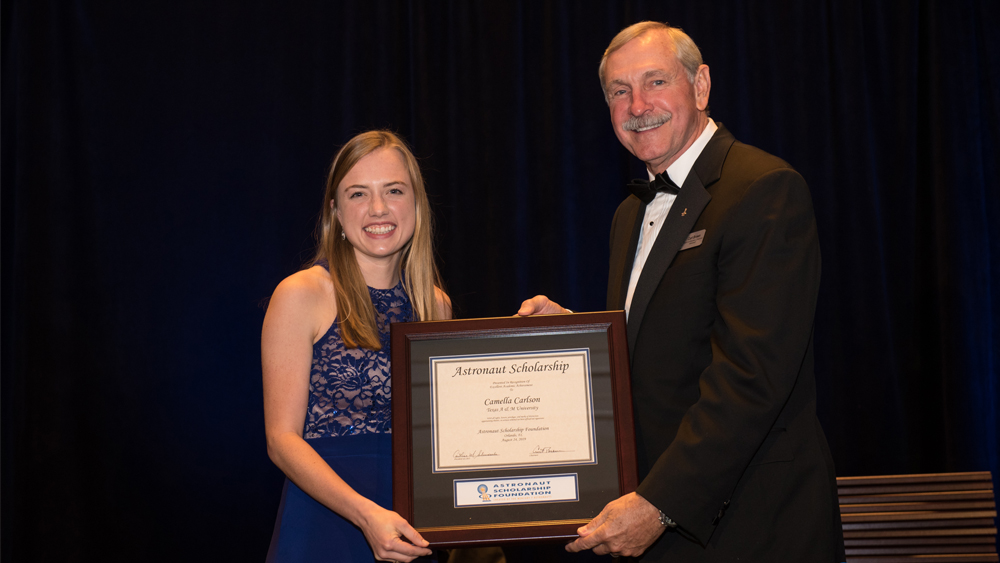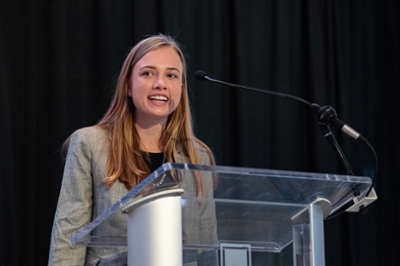
Biomedical engineering senior Camella Carlson has been named a recipient of the national Astronaut Scholarship from the Astronaut Scholarship Foundation.
“I am very honored to have received the Astronaut Scholarship. I was thrilled to find out I was a finalist for Texas A&M, and even more so to find out that I was selected as a scholar,” Carlson said.
The scholarship emphasizes research and advancing fields, which aligns with Carlson’s interests. Her general research interest is in translational medical research, working on ideas to implement new technology in a way that is clinically useful. She works with Dr. Kristen Maitland, associate professor, who nominated her for the scholarship.
In Maitland’s Biomedical Optics Lab, she worked on projects involving the optical detection of tuberculosis and a microscope setup to monitor cells grown on microspheres. In 2018, she participated in the Harvard-MIT Health Sciences and Technology Biomedical Optics program, and in summer 2019 she worked at the National Institutes of Health.
Carlson’s interest in biomedical engineering started when she was young, and in high school, an anatomy and physiology course caught her eye.
“I chose to study specifically as a biomedical engineer because I liked the problem-solving mindset that accompanies engineering and wanted to understand human physiology through the lens of math and science,” Carlson said. “I also was drawn to biomedical engineering because it is cutting edge."

There also were personal reasons that drove her to work on translational projects that have direct applications to individual patients.
“Growing up with a blind dad, I understand how medical conditions can affect an individual’s quality of life in both obvious and subtle ways,” Carlson said. “I am thrilled to be a part of a field where I can use my knowledge and skills to improve the lives of others.”
Carlson attended a conference earlier this year, where she enjoyed meeting other Astronaut Scholars. Although they had varied specific fields, they had a common interest in science and engineering, which helped them learn from each other.
“Moving forward, I think that being an Astronaut Scholar will set me apart among other applicants when I am pursuing further education,” Carlson said.
She plans to pursue a Ph.D. in biomedical engineering, possibly a combined master’s and Ph.D. degree.
“I can envision myself at a research hospital, a crucial junction of clinical care, medical expertise and innovative research,” Carlson said. “I want to combine basic science discoveries with problems dictated by physicians and patients to radically improve the speed, accuracy and simplicity of diagnoses and treatments.”